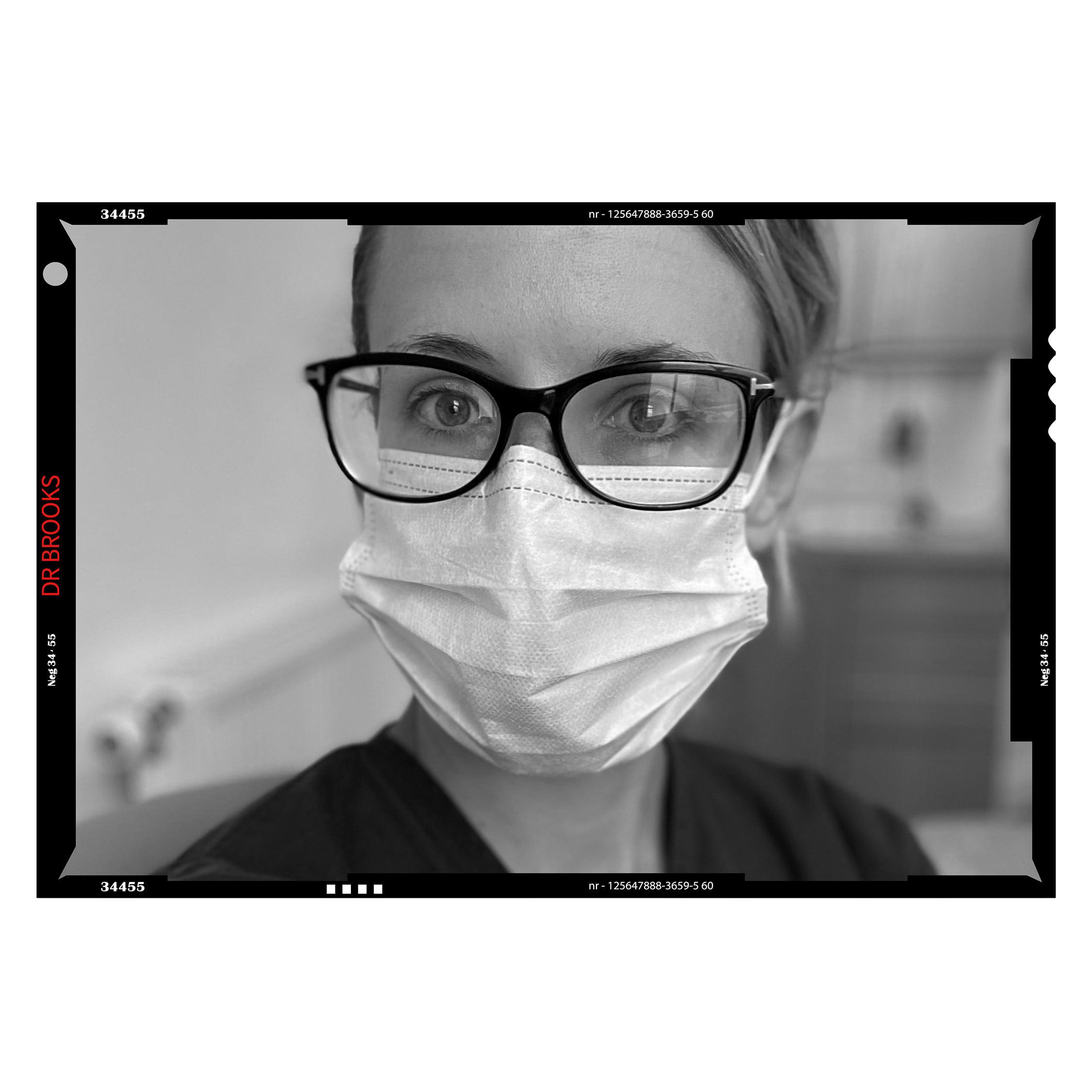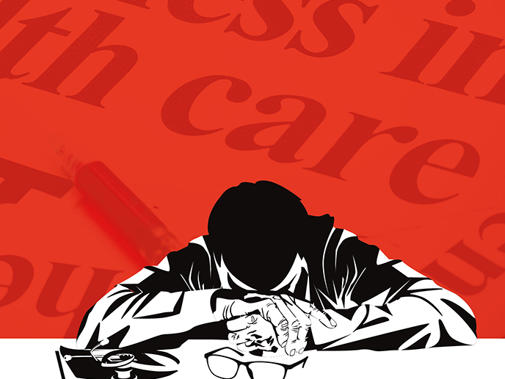‘It’s a vicious cycle of worry – and that is very stressful.’
York GP Abbie Brooks is scrolling through the list of people requiring urgent, same-day, appointments, and reflecting on failures in public-health messaging, lessons from the pandemic left unlearned and communities who seem to have forgotten how to self-care for even some of the most minor illnesses.
It’s barely 8am and the list of patients reads: cough, tonsils, cough, cough, ear, tonsils, cough. Among the litany of cold and flu-type symptoms a patient who has much more obviously concerning symptoms – suicidal ideation or possible cancer symptoms – crops up every so often, but the vast majority who need triaging follow a familiar theme. ‘It’s usually not that bad in December,’ Dr Brooks, who has been a partner here for four years, says.
But this is Wednesday, 14 December, 2022. Not only is the entire NHS system in absolute crisis, but there has also been an increase in cases of invasive group A Streptococcus – with print and broadcast media, parenting forums and conversations outside the school gates ablaze with talk of an outbreak of scarlet fever. Across the country, parents and families are worried – many want reassurance and many want antibiotics.
Patient pressure
The ‘vicious cycle’ Dr Brooks references is in full swing; more people want appointments. Those who get them want solutions – and not just to be told to give themselves time to recover.
As a result, there is a shortage of antibiotics and now parents and families are worried about that too. Those worried parents race for appointments to secure the now even more coveted tablets and fluids.
In this maelstrom it is hard to escape the feeling GPs are vulnerable to the effects of whatever is happening in society – so often the ones picking up the pieces when everything else is falling apart.
Dr Brooks’s first face-to-face patient of the day, though, has none of those symptoms, and provides a timely reminder about the importance of general practice amid the chaos which threatens to overwhelm services.
We need time to get to know people, to give them a chance to say everything they wantDr Brooks
He has rung the surgery to raise concerns about a lump in his neck which he says has been there for ‘quite a long time’ but has recently begun to worry him much more significantly.
When the patient arrives he is clearly incredibly nervous and, ultimately, reveals he has convinced himself that he has ‘some sort of awful cancer’. The lifting of the worry in the room is palpable – so powerful it is almost vicariously relieving – when Dr Brooks is able to diagnose a cyst in the skin of no real concern.
 BROOKS: Complete focus on patients
BROOKS: Complete focus on patients
It is an interaction which reveals so much about Dr Brooks and the specialty.
On top of the mountain of scarlet fever concern, this was a week in which there have been yet more media stories which feel like barbs for doctors – one of them suggesting GPs might somehow be drafted in to work in ambulances during strikes – and yet Dr Brooks goes about her work as if each patient is the only thing on her mind: that care and compassion is totally focused and absolutely undivided.
Dr Brooks also finds time to check a skin lesion, to discuss what to be aware of around new and existing moles, and to make it feel much more likely that this patient will call his GP next time he has a worrying symptom, rather than trying to ignore it.
It is just one encounter of many during a day which feels like brilliant general practice – where and when it is most needed, but so hampered by strain from elsewhere.
Time and space
Given the pressures on the service and what seem to doctors like attacks from government ministers and the media, not to mention increasing levels of expectation and abuse from the public, it is genuinely quite moving to see the effect of the dedication of doctors working in primary care.
‘I don’t want to put people like that off,’ Dr Brooks says. ‘We are incredibly busy but I don’t want people like him thinking twice about phoning us. Prior to that consultation I was thinking “this could be leukaemia or lymphoma, what do I need to do to make sure I don’t miss something”.
'If it had been that I would have had to do a full check of his lymph system.
‘This is the thing, our interactions can be joyous. We’ve taken so much worry away from him. But we do need that time and space to get to know people, to give them a chance to say everything they want to say, to get everything off their chest… And that’s really difficult in the current environment.’

